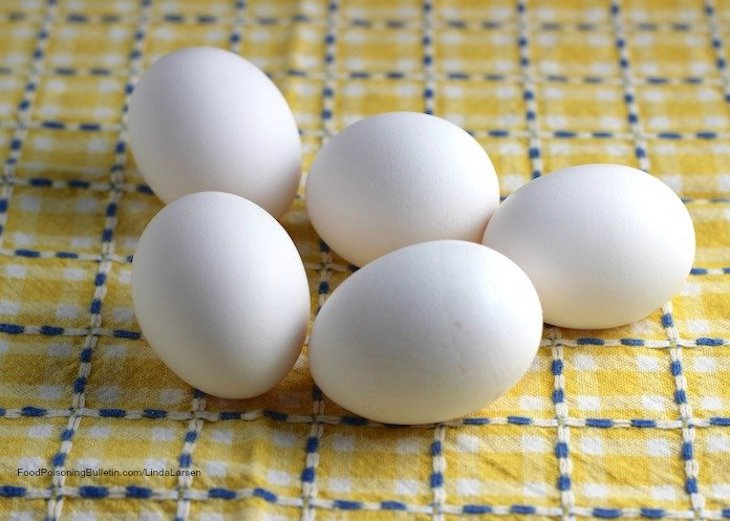With the coronavirus pandemic forcing more people to cook at home, many consumers need reminders about food safety. If you haven’t cooked in a long time, you should know that there are some foods that are considered high risk and need to be handled with care. One of those foods is eggs, more specifically Salmonella and eggs.

Many Salmonella outbreaks have been linked to raw and undercooked eggs. Eggs should be coked to a final temperature of 160°F, as measured with a reliable food thermometer. That means that sunny side up and over-easy eggs are not safe to eat, especially if anyone in your family is in a high risk group for food poisoning.
Those groups, which have a higher rate of hospitalization and even death from bacterial infections, include young children, anyone over the age of 65, people with compromised immune systems, and those with chronic illnesses such as diabetes.
Here’s the scoop: All eggs can be contaminated with Salmonella, not only on the shells, but also in the egg itself. Chicken ovaries can carry the pathogen, which means that the egg is contaminated as it is formed. There is no way to tell whether the egg you are holding contains Salmonella or not.
That means that you have to handle the eggs carefully Keep them away from foods that are eaten uncooked, such as fresh produce. Watch out for cross-contamination between eggs and other foods and eggs and utensils, such as cutting boards and kitchen counters. After you work with raw eggs, wash your hands and any item that may have come into contact with the egg, with soap and water.
Cook eggs until both the yolk and white are firm, that is, to 160°F. All dishes made with eggs should be cooked to 160°F or hotter.
Any food that contains raw or undercooked eggs is risky That means that hollandaise sauce, Caesar salad dressing, tiramisu, and mousses should be made only with pasteurized eggs. And if you buy pasteurized eggs, follow expiration dates and discard the eggs when that date is past.
Always eat or refrigerate eggs and foods made with eggs promptly after cooking. The rule is to put perishable foods back into the fridge within two hours of cooking. That time falls to 1 hour when the air temperature is above 90°F. And discard cooked eggs, and dishes made with them, after seven days in the refrigerator.
If you follow these guidelines, you can be sure that the egg dishes you make for your family will be safe to eat.




